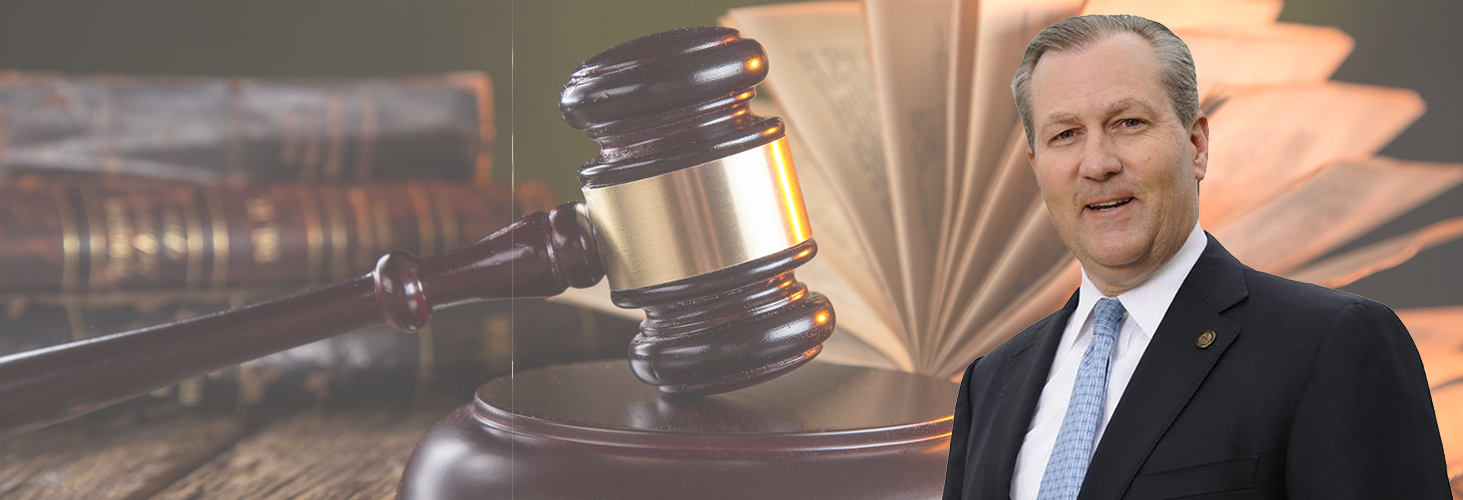By Bill Britt
Alabama Political Reporter
MONTGOMERY—The State has filed a Supplemental Brief in support of its motions in limine in the felony public corruption trial of Speaker Mike Hubbard.
According to the Criminal Law Bulletin, Volume 46, Number 2. “Most commonly, motions in limine are used to strike at objectionable evidence that may be highly prejudicial. If the opponent waits until trial, and the evidence comes out of a witness’s mouth before the court can rule on an objection, a limiting or curative instruction may be insufficient to undo the damage.”
The State is asking Judge Jacob Walker, III, to prevent the defense from introducing irrelevant evidence to the jury, or during jury selection.
According to the State’s filing, the evidence it seeks to exclude is irrelevant, because it does not deal with the 23 felony indictments against Hubbard.
Judge Walker is being asked to exclude evidence regarding post-indictment elections or election results, claims of prosecutorial misconduct, specific instances of good conduct by Hubbard, or bad conduct by other witnesses, other public figures or candidates use or opinion of Craftmaster Printers or Auburn Network, or other public figures consulting contracts, the length of jail time Hubbard would face if convicted, as well as arguments stating the Alabama Ethics Laws are unconstitutional.
Most of the issues were raised at a pretrial hearing where Judge Walker ruled against Hubbard.
The court found no prosecutorial misconduct, that the Alabama Ethics Laws were constitutional, and that other public figures consulting contracts were irrelevant.
The State points out, that Hubbard’s criminal lawyers plan to reintroduce many of these arguments during his trial. Specifically, they cite the defense counsel’s arguments at the April 20, hearing: “The defense fully intends to raise at least some of the issues identified in the State’s motions in limine, particularly prosecutorial misconduct, at trial.”
In the motion the State argues, “While the trial has yet to start, defense counsel stated at the April 20 hearing that the defense intended to call Deputy Attorney General Matt Hart as a trial witness, and implied that the defense intended to call Baron Coleman as a witness as well.”
The State further notes, “Since both of these witnesses are only relevant to Hubbard’s previously rejected prosecutorial misconduct argument, defense counsel’s statements leave no doubt that the defense will inject the prosecutorial misconduct issue into the trial, and likely do so in front of the jury, unless this Court grants the State’s motion in limine to stop them from doing so.”
In the Rep. Barry Moore trial, Judge Walker ruled the defense could not argue prosecutorial misconduct in front of the jury, or during jury selection.
In conclusion, the State says, “The jury will decide whether Hubbard is guilty or innocent of the 23 felony ethics counts in the indictment – not legal issues that have nothing to do with the merits of the charges. The jury will be asked to serve as a fact-finder to determine whether the evidence presented supports the charges in the indictment. The prosecutorial misconduct issues that were litigated and rejected pretrial would serve only improperly to ‘divert the minds of jurors from the main issue’ of Hubbard’s guilt or innocence.”
Diversion is a tactic Hubbard has used long before he was indicted. Through his attorneys, he has hired PR firms to spin his innocence, paid for advertising proclaiming his innocence in his local news paper disguised as an actual news report, and a host of other schemes. He has also used the power of his office to try and pass laws that would favor his case, before Judge Walker.
The State is asking for these tactics to end.



















































